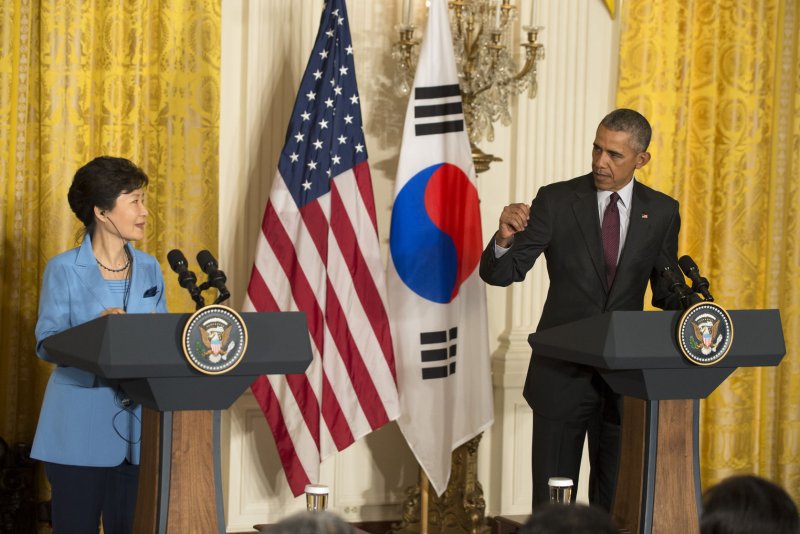South Korean President Park Geun-hye interacts with U.S. President Barack Obama in the East Room of the White House last October. South Korea and the United States are to share real-time military intelligence for the first time – to better prepare for North Korea’s missile threats. Photo by Pat Benic/UPI |
License Photo
SEOUL, Jan. 21 (UPI) -- South Korea and the United States are to share real-time military intelligence for the first time – to better prepare for North Korea's missile threats, and possibly to enhance information sharing with ally Japan.
Seoul's Defense Ministry stated Friday, local time, the initiative, to be launched in 2016, is to expand information gathering capabilities and strengthen the existing U.S.-South Korea system of intelligence sharing.
"Within the year, a U.S.-South Korea system, through which real-time information on North Korea's ballistic missile situation can be shared, will be built," a Defense Ministry official said, according to South Korean outlet News 1.
The announcement means the South's military operations center, the Korea Theater Missile Operation Cell, or KTMO Cell, will be linked to the U.S. TMO-CELL system via Link 16, a military tactical data exchange network already used between the United States and NATO.
North Korea stunned the world on Jan. 6, when it declared the "successful" test of a hydrogen bomb, but experts across the United States, South Korea and Japan have said it is unlikely the explosion detected near the China border resulted from the detonation of a thermonuclear weapon.
In response, South Korea's Unification Ministry stated in its 2016 report it would create a task force that would specifically address the North Korea nuclear issue. Other new changes planned include increased multilateral cooperation with the United Nations and other international organizations for civic projects.
Seoul's military is also to develop a stealth combat drone that could stay airborne for ten hours, and capable of firing on enemy missiles.
In the case of a large target, the military stated, the drones could fly deliberately into the object to intercept and destroy it in midair.
South Korea's Agency for Defense Development stated research is to begin in 2017, and applied research in 2019.















